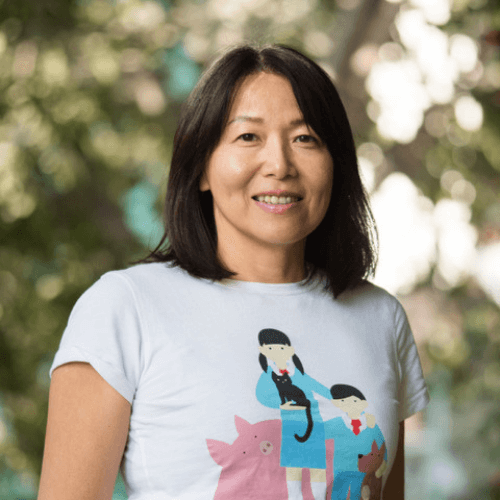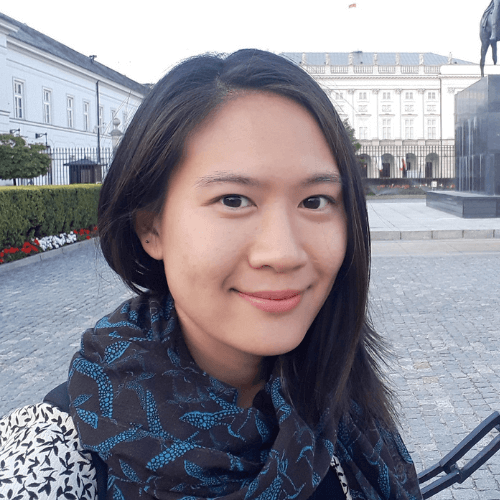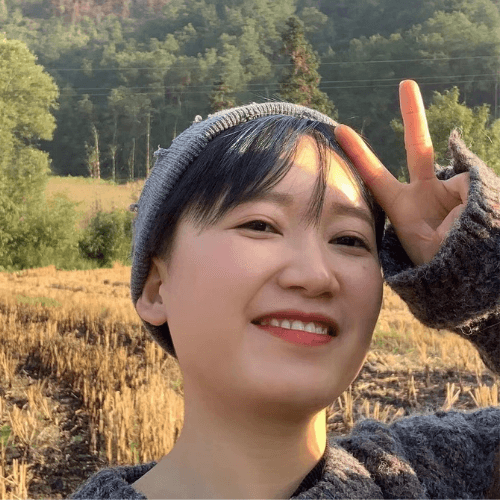Roundtable: How Can Charities Effectively Help Animals in Asia?

In our Roundtable blog series, we ask a handful of contributors to provide their points of view on complex topics or unsettled questions. We hope that this approach will help us to integrate and learn from multiple perspectives on animal advocacy.
Introduction
Animal charities are doing important work in Asia, but the animal advocacy movement there is still relatively young. Despite this, there have recently been some positive developments for animal advocacy in the region. We think now is an excellent time for charities to gain a better understanding of the opportunities to effectively help animals in Asia, as well as the barriers.
We asked some leaders in the Asian animal advocacy movement to share their insights on how charities can effectively help animals in Asia and support the growing movement. Thank you to the following people for contributing to this post:
- Pei Su, ACTAsia
- Wichayapat Piromsan, Sinergia Animal
- Shirley Lu, ProVeg International
- Monica Wang, xiaobuVEGAN
Each of our contributors offers a wealth of experience and a unique perspective. Pei Su, the founder and CEO of ACTAsia (who has over 30 years of experience in the movement), addresses the root causes of animal suffering and helps societies understand the interdependence of people, animals, and nature. Wichayapat Piromsan, the Public Engagement Director of Sinergia Animal, works to promote more compassionate and healthy diets in low- and middle-income countries in Southeast Asia. Shirley Lu, the Managing Director of Proveg International, has developed and implemented strategies for complex advocacy opportunities in multiple Asian countries. Lastly, Monica Wang, who grew up in a province famous for dog meat, founded xiaobuVEGAN and now works to advocate for animals and promote a plant-based lifestyle.
We encourage you to discuss our contributors’ thoughts—and share your own—in the comments!
Note: Some contributions have been edited for length and clarity.
Pei Su
Founder and CEO, ACTAsia

Pei Su co-founded ACTAsia in 2006 to support the development of compassionate societies in Asia. While many nonprofits were already addressing human, animal, and environmental concerns with direct action, Pei felt the cultural chasm in Asia was too great to ignore. Pei believes that change would not happen immediately and knew that intervening may cause offense or rejection. She chose to focus on helping societies understand the interdependence of people, animals, and our natural habitat. Instead of stepping in to criticize, Pei stepped back and addressed the root causes of issues. To her, it was clear that ACTAsia’s biggest obstacle in Asia was ignorance, not cruelty.
Focus on making the animal advocacy sector more professional and retaining talented staff
I think the most important thing for the Asian animal advocacy sector is to develop a sense of professionalism. In Asia, working for charities, especially animal charities, is not considered a “proper career” and could be even seen as a tragedy by some families and society. Very often it is associated with having no career prospects, which often means that nonprofit jobs are unsustainable or low-paying.
To make our sector more professional, organizations should focus on attracting and retaining talented staff. There are not enough people choosing to work full-time in the movement in Asia, but there are many more people working for the industries that exploit animals. One reason that there are so few charity workers is that there is never enough funding to cover staff pay or core operating costs. Traditionally donors prefer to give money directly to a campaign or to rescue animals, rather than to cover staff salaries.
There are also not enough incentives for charity staff in Asia. Most charity workers are underpaid, have overstretched workloads, limited training, and challenging work environments. At ACTAsia, we try our best to make sure we pay our staff a reasonable rate, but we are still way behind in terms of staff capacity and core funding—a single person needs to do two or three people’s jobs. This puts huge pressure on our staff. We are not alone in this dilemma which is applicable to many other organizations in Asia.
Monitor your work
Starting a project is not difficult, but making the project sustainable year-after-year in order to create long-lasting change is challenging. Businesses in Asia use clear strategies and Key Performance Indicators (KPIs) to monitor their work, but many charities in Asia don’t use these measurement tools. At ACTAsia, we do research on issues, monitor the scale of trade and use of animals, conduct consumer surveys, and produce research reports. Charities need good management with the right skills, expertise, and relevant knowledge to prioritize monitoring their impact.
Use science-based studies or solid data to back up your work
Our empathy and compassion motivate us in our work. Running a project or organization requires knowledge and expertise on the issue because you’re not just talking about a concept, you’re often inventing a new concept. There is a foundational understanding of animal rights and animal welfare in the West. In Asia, there’s no foundation, or the foundation is still shaky; people don’t always understand what you’re advocating for. Animal welfare is a science and not something that should be compromised, so we should utilize science-based data when promoting animal welfare in Asia. At ACTAsia, we use the reasoning that animals are sentient because this is supported by scientific research.
Use the right language
“You need to use language that is non-threatening and non-judgmental, as Asian populations tend to be wary of confrontational messaging.”
In Asia, the animal welfare sector is still a minority. To become mainstream, we really need to use mainstream language. For example, when we communicate with the public and authorities, we use Sustainable Development Goals (SDGs)1 and “One Health”2 as a hook because people care about those goals. We’ve successfully used SDGs as an entry point to talk about why animal welfare is important and why factory farming should be stopped. For instance, SDG 12 includes responsible consumption which includes the consumption of meat.
Finally, you need to use language that is non-threatening and non-judgmental, as Asian populations tend to be wary of confrontational messaging. Food is very important in Asian culture, so instead of advocating to go vegan and make people worry about losing something, we communicate that if you agree with responsible consumption, then eating more plant-based food is something you can do to help.
Additional thoughts
I have been in the animal advocacy movement for over 30 years. Over the next few years, I would like to see Asian leaders support each other and work together to find more sustainable solutions and build a bigger support structure for our movement. We have already seen some positive developments in Asia: For the first time, China has made a five-year agriculture plan that includes plant-based meat and vegan eggs. I think timing is really important, as when you push the right things at the right time it is possible to achieve more using less effort. I think the time has come, and there are now more opportunities to advance the plant-based movement in Asia.
Wichayapat Piromsan
Public Engagement Director – Southeast Asia, Sinergia Animal

Wichayapat Piromsan (Wich) is the Public Engagement Director in Southeast Asia for Sinergia Animal. She is based in Bangkok, Thailand. Before joining Sinergia Animal as a campaigns manager in 2019, she had been involved with animal advocacy on a voluntary basis for over two years. She is working with the team in both Thailand and Indonesia to secure cage-free commitments from major companies in those countries, as well as working with other NGOs and key stakeholders in Southeast Asia to boost the movement regionally.
Understand the big social picture to hold big corporations accountable
One of our main strategies is to hold major corporations accountable and ask them to commit to more responsible sourcing policies for animal-based ingredients. We recognize that these corporations have the financial resources to make such changes. They benefit from the current system and generate enough annual revenue to switch to more expensive systems that are better for animals. This is the cost that corporations need to pay to make systems fairer and inflict less suffering on animals, just like other corporate social responsibility policies they have already implemented.
A challenge arises when some people are concerned that demanding better standards for animals will have negative effects on small farmers who cannot afford to change their systems or low-income people who cannot afford more expensive animal-based products. It is therefore essential that we be transparent about our intentions and strategies. We owe it to the public to communicate why we have to hold big corporations accountable. Instead of demonizing all forms of raising animals for food, we highlight that the main problem is large-scale, intensive factory farming operations run by big corporations.
This movement is nascent in Southeast Asia. So despite our transparency and good intentions, some people might not understand and still antagonize animal advocates. We just need to be persistent and patient.
Celebrate whole-food, plant-based ingredients that are already part of the local cuisine
With the attempt to encourage more people to adopt plant-based diets comes the high-tech solutions of lab-grown meat and plant-based alternatives to meat, eggs, and dairy products. These changes are promising and have the potential to be part of the solution for the future, but they can be seen as too expensive for low- and middle-income consumers in Southeast Asia. That is why we prefer to promote local plant-based ingredients that are easy to find, healthy, and affordable.
Many plant-based ingredients that are now popular internationally—such as tofu, tempeh, coconut milk, soy milk, and young jackfruits, among others—have long been part of Southeast Asian cuisine and were never exclusive to vegan and vegetarian dishes. So our messaging is focused on going back to what local cuisines have to offer and debunking the myth that veganism is only for the rich.
Meet people where they are, then grow together
“As a Global South organization, it is essential for us to recognize the limited resources, low awareness levels, and socioeconomic challenges that make it harder for the majority of people to be vegan.”
As we enter our fourth year of operations in Asia, we have seen growth in the numbers of volunteers and applicants who would like to support us or join our team. Not all of them are ready to adopt vegan diets or lifestyles entirely. We make a point to include and consider everyone who wants to join the movement, regardless of where they are in the journey toward change.
It might seem counterintuitive to hire or include people whose behaviors are not entirely aligned with the mission of our organization. But, as a Global South organization, it is essential for us to recognize the limited resources, low awareness levels, and socioeconomic challenges that make it harder for the majority of people to be vegan. As long as they believe in the mission of our organization, they should be included in our movement and encouraged to grow together with us as they become more aware of the issue.
More research is needed in Southeast Asia
There are multiple challenges we face working in Thailand and Indonesia. One of them is the lack of awareness about the connection between intensive animal agriculture and public health—particularly the outbreak of zoonotic diseases. Although the connection between animal and human health is broadly recognized in many countries, in Thailand and Indonesia, this conversation is still limited to academics and animal welfare experts. It is not well known to the public that the way that animals are kept and raised can negatively impact human health. More local scientific studies that address these issues are needed, along with better communication of these research needs to i) ensure said research becomes a priority and ii) have the ability to back up claims with scientific data.
Shirley Lu
Managing Director – Asia, ProVeg International

Shirley serves as Managing Director in Asia and Chief China Representative of ProVeg International, the largest European nonprofit organization for plant-based and cell-cultured food innovation. She has an extensive background in both retail foods and food service in Asia. In 2021, she won an International Digital Impact Award for launching the first-ever plant-based innovation campaign with major food companies across Asia. She is also a Coordinating Lead Author for a UNEP General Environment Outlook Brief report, The Role of Business in Transforming the Food Systems, which was published before the U.N. Food System Summit in 2021.
Food system transformation in Asia
When it comes to transforming worldwide food systems, Asia plays a key role. At ProVeg, we are working to transform the global food system by replacing animal products with plant-based and cultured alternatives. Our goal is a more sustainable, healthier, and safer food system that benefits humans, animals, and our planet, aiming to turn our food choices into a multi-problem solution. To achieve this goal, ProVeg follows an impactful institutional strategy that we call “influencing the influencers.” We target key institutions, government authorities, and thought leaders to promote the benefits of food system transformation—such as decarbonization, food security, and food safety—taking a pragmatic, solution-focused, and empowering approach.
Understand and respect the cultures and needs of Asian countries
To be effective, as a foreign charity, it is imperative to have a good level of understanding and respect for the cultures and needs of the Asian countries. Interventions should align with and contribute to social goals in the countries we work in. Further, in the case of food systems transformation, it is crucial to engage and focus on flexitarians and on new food innovation.
Asian people are open to alternative proteins. Asia is the home to tofu and tempeh, which were respectively invented in China and Indonesia and have been part of their food repertoire for centuries. Besides Asia’s plant-rich food heritage, the younger generations (Millennials and Gen Z) are even more open to alternative proteins thanks to the convergence of growing health and environmental consciousness.
Work with other professionals to accelerate new food innovation
Asian people are keen on food innovation and have the talents to do so. There is a lot of entrepreneurial spirit to be found in Asia. With its strong interest in innovation, passion for food, and regional consumption and sourcing market, Asia can become a world leader in alternative proteins, creating large-scale positive impacts around the globe. At ProVeg, we are working to support this development by helping to create opportunities for both startups and established food companies to drive a green, food-sustainable economy.
‘’There is a lot of entrepreneurial spirit to be found in Asia. With its strong interest in innovation, passion for food, and regional consumption and sourcing market, Asia can become a world leader in alternative proteins, creating large-scale positive impacts around the globe.’’
ProVeg’s Food Innovation Challenge in China and Southeast Asia aims to increase the consumption of alternatives to animal-based products to support global health, environmental sustainability, food security, and animal welfare. Of the 200+ proposals submitted by close to 800 students from about 75 universities in 14 different countries, more than eight projects were adopted by participating companies in their innovation funnels. Earning mentorship from leading food-industry experts from Beyond Meat, CPF, Haofood, Nestlé, Oatly, Unilever, and ProVeg International, this program was able to attract college students and get them interested in plant-based food innovation. This is crucial as those students are not only long-term consumers but, in the future, also decision-makers and thought leaders who can play an important role in food systems transformation.
ProVeg also launched the New Cuisine: Sustainable Foodservice & Culinary Summit, in partnership with Worldchefs, the world’s largest network of chef associations representing culinary professionals from all over the world. The event was aimed at inspiring chefs, helping to make them catalysts for sustainable food consumption and behavioral change, accelerating the growth of healthy and sustainable plant-based foodservice opportunities, and nurturing plant-based culinary talents. Despite the constraints imposed by COVID-19, the summit reached over 800 foodservice professionals (100+ in-person and nearly 700 online), providing them with the information and skills needed to pioneer future plant-based culinary innovations. Attendees included five Michelin star chefs as well as successful and well-known restaurateurs from China and Europe.
Support startups for plant-based and cultured alternatives
Besides working with food companies and food service professionals, ProVeg also consults food businesses and supports startups through the ProVeg Incubator: the world’s first incubator for plant-based and cultured alternatives, with forums in major food exhibitions and conferences. In the Food Ingredients Asia exhibition, ProVeg’s Plant-Based Food Innovation Forum showcased innovations in plant-based ingredients and technology, inspiring food professionals’ interest in their potential. In 2021, ProVeg launched New Food Invest, a conference with an Asian-Pacific focus, connecting alternative protein innovators to investors and technology experts. These interventions ensure coverage of the whole-value creation chain, from investment to products and consumption.
ProVeg has won five TAs (Temporary Activity Approval) by the Chinese government and recently received approval for a Rep Office in Shanghai, the first global NGO promoting alternative proteins such as plant-based foods and cultured meat in China. ProVeg has also been a collaborator with Singapore’s Agency for Science, Technology and Research, Singapore Enterprise, UNFAO, and UNEP in Asia. ProVeg is excited about future opportunities for food system transformation in Asia and will continuously expand our activities.
Monica Wang
Founder, xiaobuVEGAN

Monica Wang is the founder of xiaobuVEGAN, a Chinese organization working to reduce the suffering of farmed animals. After growing up in Guangxi, a province famous for dog meat, Monica is now an animal advocate who promotes a plant-based lifestyle. At xiaobuVEGAN, she engages in institutional outreach, provides resources about vegan options in China, supports dietary change via vegan challenges, and works to influence young people like herself.
Animal protection in China
At present, the most common animal protection organizations in China are those that work to protect stray cats and dogs. Others promote reducing the consumption of livestock and poultry. The former organizations focus on rescuing stray animals and helping them find adoptive families, and there are many of them spread across the country. There are fewer organizations that focus on farmed animal advocacy, but xiaobuVEGAN is one of them.
Our main work includes three major projects. The first is to promote our vegan challenge, to encourage everyone to practice a plant-based diet for a period of time. The second is restaurant outreach, to help non-vegan restaurants develop vegan options and promote them in their community to attract customers. The third is creating engaging videos; for example, recording debates and street interviews to increase public awareness around plant-based lifestyles.
Barriers and challenges that charities face
There is disagreement on the concept of veganism. Many people resist the idea of being vegan or protecting animals, but most of the time they are just opposed to the “Western” concept of it. At the same time, due to rapid economic growth in China in recent decades, people’s incomes have increased significantly. However, reducing the consumption of animal products is not an option for most people.
There is also a lack of familiarity with the concept of veganism. A number of theories to refute veganism have gained a lot of support: for example, the nutrient deficiency theory and the “plants can also feel pain” theory. Therefore, we need a lot of educational support and the support of mainstream media to inform people about plant-based foods.[HB2]
Engage in online and offline events
“Although we have been affected by the pandemic for the last three years, the public likes lively events. These gatherings cause many people to try their first-ever vegan product, specifically plant-based meat or eggs’’
From my experience, online and offline vegan-related events are popular. Although we have been affected by the pandemic for the last three years, the public likes lively events. These gatherings cause many people to try their first-ever vegan product, specifically plant-based meat or eggs, and understand the existence of such products and the concept behind them.
We plan to collaborate with various vegan product brands and jointly organize online and offline activities. The purpose of this is to let people know that there are many animal substitutes on the market. Humans do not need to eat animal products to get the nutrients or energy they need. The importance of market education is getting the public to understand the concept of veganism, which is our ongoing work.
Educate children on where their food comes from
If there is change in the future, I think it needs to start by letting children know and accept that animals are not born to be human food. We should let children interact with animals other than cats and dogs. I think it is very important to really see and touch them. For children raised in the city, animals such as pigs, sheep and chickens only exist in cartoons, and they don’t even know where the meat on the table comes from. Therefore, education in this area is very important. By educating children, parents from older generations will also be educated.
How open are Asian populations to alternative proteins?
People’s awareness and willingness to try alternative proteins are getting higher and higher, especially among the younger generation. We believe that the taste of plant-based alternatives is getting better and the price is getting more affordable because of technological improvements, so more people will be willing to try and accept plant-based alternatives and incorporate them into their daily diet and shopping list.
Sustainable Development Goals (SDGs) are a group of 17 global goals that were set up by the United Nations. The aim is to reach these goals by 2030 for a more sustainable future.
One Health is a transdisciplinary approach to achieving optimal health for all by recognizing the link between people, animals, plants, and the environment.
About Holly Baines
Holly joined ACE in September 2021. She holds a bachelor’s degree in psychology—focused on human food choices—as well as a master’s degree in wild animal biology. Before joining ACE, she spent four years working in wildlife conservation. Holly is passionate about using communications to promote ACE’s mission and help as many animals as possible.
ACE is dedicated to creating a world where all animals can thrive, regardless of their species. We take the guesswork out of supporting animal advocacy by directing funds toward the most impactful charities and programs, based on evidence and research.
Join our newsletter
Table of Contents




